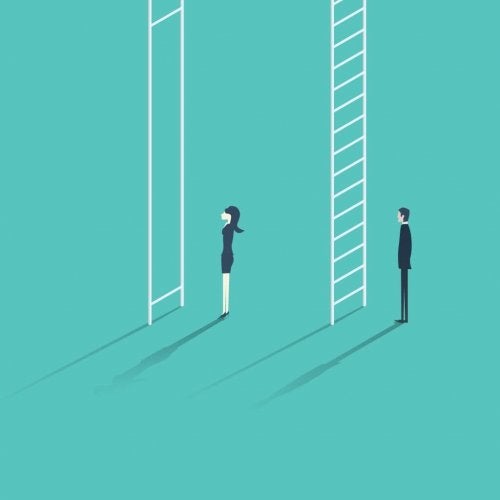Gender inequality is a social and cultural phenomenon in which discrimination occurs between people on the property of their gender, mainly between men and women; In addition, it is not a ballad phenomenon, since its impact can be seen at different levels: labor, social, family, etc.
Socially, for example, a woman may seem subordinate to her husband or father; in economic terms, women continue to receive lower wages than men in the same position (wage gap). Household chores or childcare are always considered more women-related tasks than men, so we could continue to complete a long list.
- In front of him.
- Feminism or the gender perspective allows us to look at the world from another point of view.
- However.
- Changing our perspective can cause discomfort or discomfort.
- So the purpose of these lines is to refine our gaze.
- So that we can relate to the world in a more precise way.
To do this, do we have to start at the beginning, when we talk about gender inequality, what is sex?What is such a broad concept?
Gender can be divided into three levels or perspectives
While gender is expressed differently between cultures and the degree of subordination of women varies in time and space, it is very difficult to find one in which women have more political and social advantages than men. high rates of violence against women (sexual abuse, kidnapping, rape, gender-based assault and violence, sexual harassment, etc. ).
Patriarchy refers to a social order that establishes sex as a mark for the assignment of specific activities, functions, relationships and powers to each person; this structured structure of powers, hierarchies and values proposes that certain models of masculinity and femininity be universal and opposite to each other. .
Women are considered naturally better equipped for privacy, motherhood and family care, while men are naturally better equipped for command, government and ambition. The deconstruction of these beliefs that act as social mandates for men and women is one of the priority goals of feminism.
Patriarchy, as a social model, is based on certain social mandates or imperatives, which in turn are very different for men and women, some of the beliefs or imperatives of women’s conception are:
On the contrary, the imperatives of men as male beings would be
In light of the above, it would make sense for us to ask ourselves if the way of life we are currently living, given the patterns of gender inequality, is adequate, in the same way, if everything said bothers us, it is time to look for ways to contribute our grain of sand to transform the current situation. Thus, over time, it has been concluded that to overcome this gender inequality, there are different solutions, depending on whether we are men or women.
Women, in turn, have the responsibility and right to seek loneliness and take care of themselves to change these patterns. The search for a space of its own (passions, tastes, etc. ) also becomes a means of resisting these mandates; thus, according to this thought, a line of action of feminism is to promote female autonomy.
In the case of men, the path would go more towards educating attitudes and co-responsibilities.
Being a man is not incompatible with expressing and recognizing one’s own feelings and those of others, nor with taking responsibility, empathy, and meeting the needs of others; generally absent ideas from primary socialization (childhood) processes.
Thus, incorporating this content into educational programs is a central strategy of social transformation.

